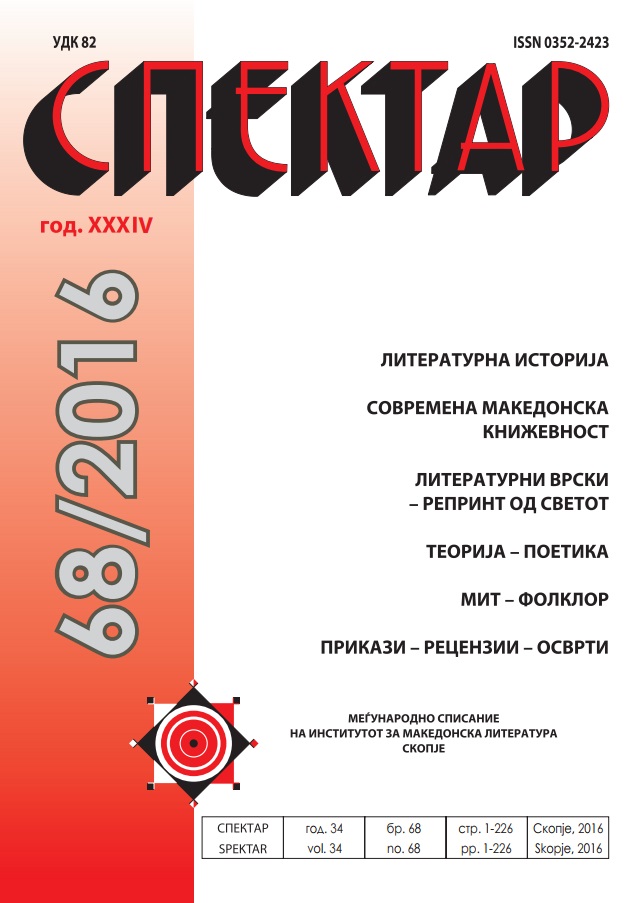ПРЕИСПИШУВАЊЕТО - КНИЖЕВЕН ФЕНОМЕН СО КУЛТУРОЛОШКО ЗНАЧЕЊЕ ВО ПОСТКОЛОНИЈАЛНАТА И ФЕМИНИСТИЧКАТА КРИТИКА
REWRITING-A LITERARY PHENOMENON WITH CULTURAL MEANING IN THE POSTCOLONIAL AND FEMINIST CRITICS
Author(s): Marijana KlemenchichSubject(s): Gender Studies, Theory of Literature
Published by: Институт за македонска литература
Keywords: women’s re-writing; postcolonial criticism; feminist criticism; cultural and emancipatory acts; midrash
Summary/Abstract: Feminist and postcolonial writers in the second half of the 20th century actualized the re-writing of narratives-classics from the past. The paper focuses on contemporary women’s re-writing, whence narratives from the past are rewritten from a woman’s perspective, in the case of feminist criticism, or the perspective of the colonized, in the case of postcolonial critics, with a clear aim to criticize existing male or imperialistic dominance. These re-writings are formed as specific cultural and emancipatory acts, and the re-writing from a literary act becomes an important cultural and critical strategy and a literary phenomenon with a cultural meaning. In postcolonial criticism, the rewritings give voice to the colonized character, i.e. the marginalized one, thus transforming the story and our perception of the past, by giving insight into the antagonism between imperialistic discourse and the discourse of the submissive one who starts to rebel. In feminist criticism, the rewriting gives voice to the silenced and marginalized women not given a chance to tell their side of the story. The Midrash is a part of the feminist rewriting. The novel Wide Sargasso Sea by Jean Rhys is part of the postcolonial writing and the novel The Red Tent by Anita Diamant is part of feminist rewriting. These novels are examples of the contemporary women’s re-writing by which the re-writing becomes a tool for intervention in the canon and has a great impact on the de-centralization, de-universalization, and demystification of the literary canon.
Journal: Спектар
- Issue Year: 2016
- Issue No: 68
- Page Range: 176-188
- Page Count: 13
- Language: English, Macedonian

